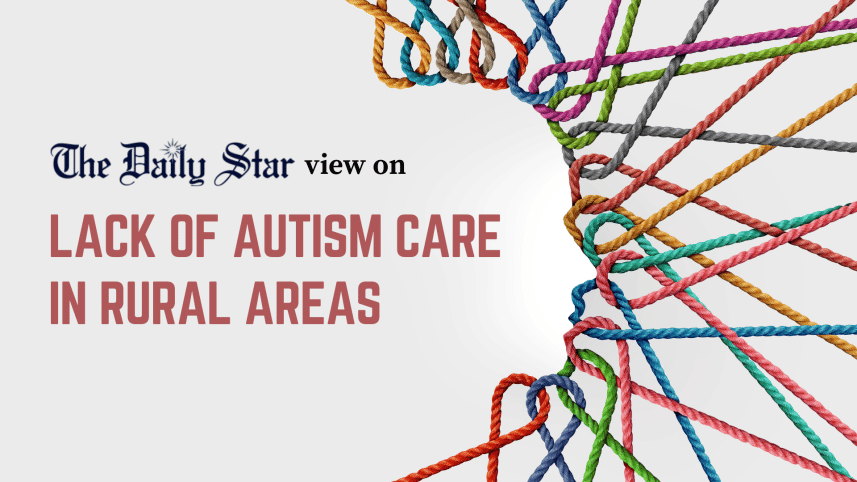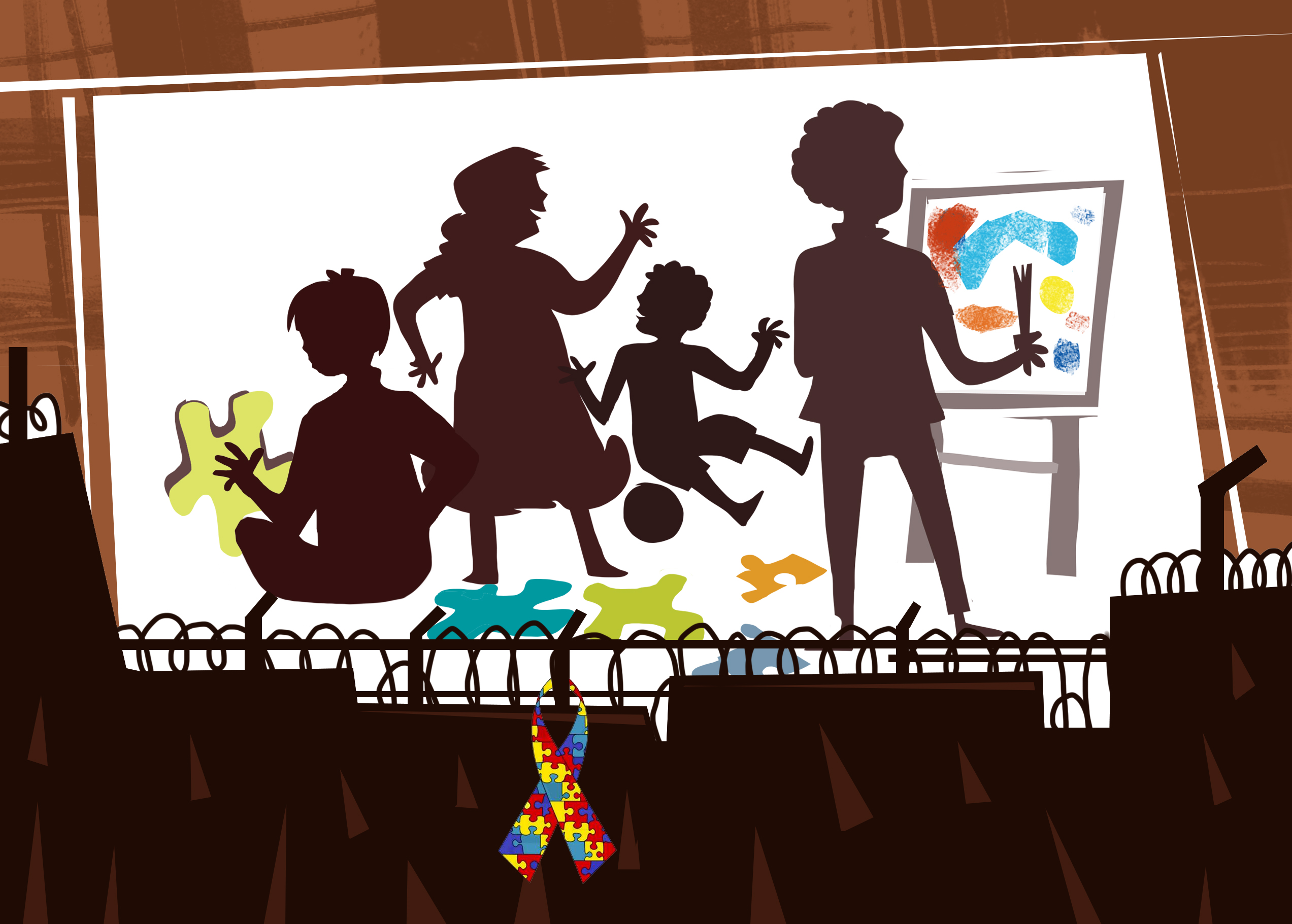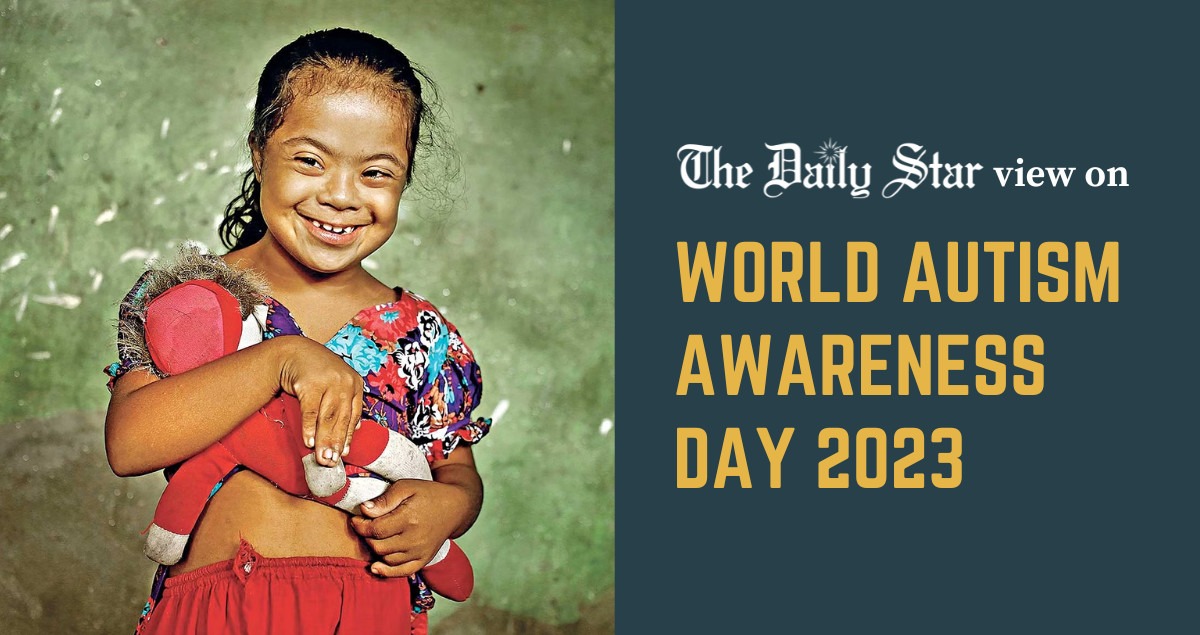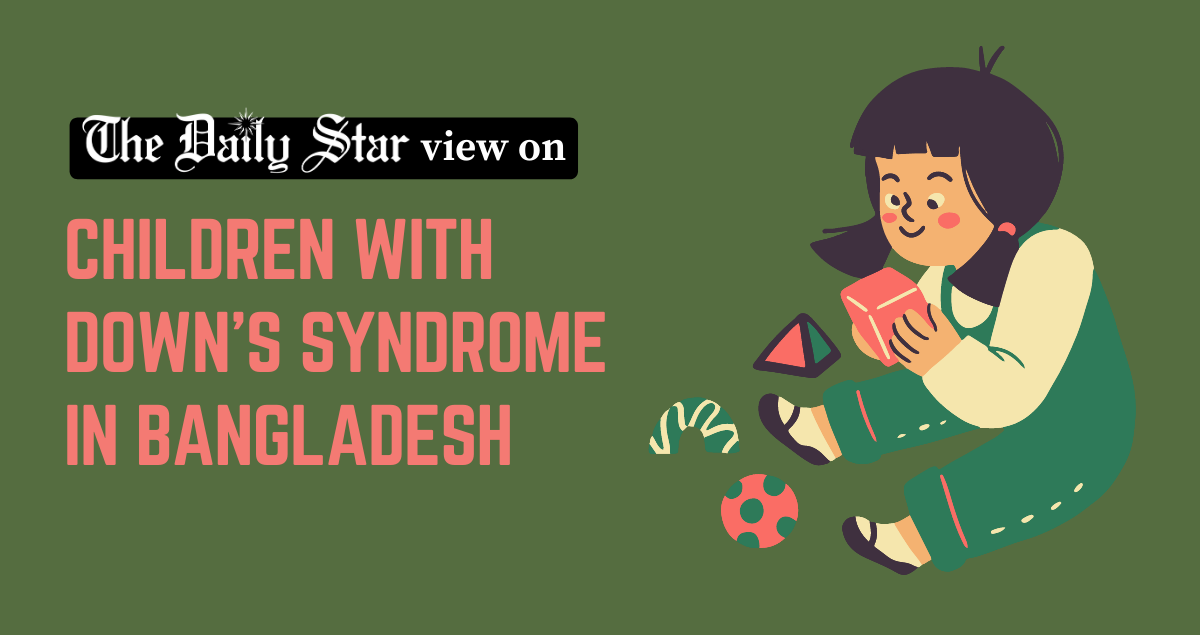Poor autism care in rural areas is hurting children

A lot has been said about the woeful state of healthcare in rural areas, with issues like the shortage of doctors and other medical staff, physician absenteeism, and lack of functional equipment or options for advanced medical care plaguing government-run hospitals and health complexes there. That being the case, it is understandable that the urban-rural disparity in healthcare would extend to autism treatment as well. But that doesn't mean it is acceptable. The fact that this has been the case despite the flurry of initiatives taken to address neurodevelopmental disabilities shows the government's lacklustre approach in this regard.
As per a report by this daily, specialised care for children with autism remains largely concentrated in urban centres like Dhaka. It cites data from the 2022 National Survey on Persons with Disabilities (NSPD) that found that access to autism treatment is higher in urban areas. In fact, both public and private facilities for treatment of behavioural disorder are mostly Dhaka-centric. As a result, families in rural areas are forced to either travel to the capital, sometimes repeatedly, or leave their children untreated. The story of five-year-old Ariyan's struggle, as highlighted by our report, encapsulates the challenges faced by many such families. With no specialist care available in their upazila health complex, Ariyan and his grandfather were forced to come to the Institute for Paediatric Neurodisorder and Autism (IPNA) at BSMMU, only to be rejected due to the high turnout of patients. Reportedly, 250 to 300 children on an average visit the institute with various neurodevelopmental issues, many from outside the capital. Of them, up to 130 can be served a day, and the rest have to come back at later dates.
For the patients leaving untreated, the burden of an unsuccessful visit extends beyond inconvenience; it impacts their well-being and future prospects. At the moment, only 34 district hospitals reportedly have very basic facilities—equipped with one child specialist, one psychologist, and one therapist—to treat such children. Moreover, the state of the care and rehabilitation centres for such children at the district level is quite pitiful. Beside scant treatment options and support systems, including for specialised education, rural parents also struggle at every stage of their journey because of lack of awareness. This state of affairs is unfortunate given the growing number of people with autism and other neurodevelopmental issues in the country.
We, therefore, urge the government to take the matter of autism care and treatment, especially in rural areas, with the seriousness that it deserves.



 For all latest news, follow The Daily Star's Google News channel.
For all latest news, follow The Daily Star's Google News channel. 


Comments